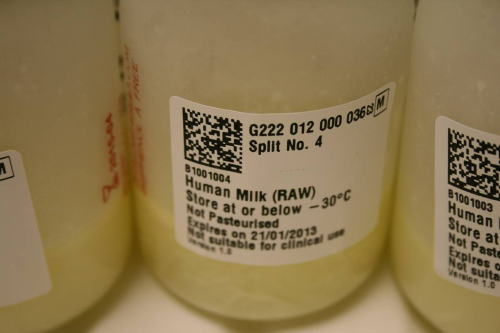Donate Milk
So you’re thinking of becoming a milk donor? Thank you for offering this precious gift to other babies.
Donating your breastmilk is one of the most precious gifts that you can offer. Donated breastmilk helps to save the lives of premature and sick babies whose mothers are unable, for many reasons, to provide them with sufficient breastmilk of their own. For some mothers, donor breast milk can act as “a bridge to breastfeeding” during early challenges and support them and their baby while establishing their supply. Where it’s not safe or possible to breastfeed, donated breast milk can also be offered by some milk banks as an alternative to infant formula.
Milk banks in the UK strive to look after donors and make the process of donating milk as simple as possible.
Just follow the step-by-step guide below, and thank you.
Find Your Closest Milk Bank
Firstly, find your closest milk bank using the link below. Contact them to discuss your specific situation, and to ensure that they are able to accept your milk.
Some Information About You
The milk bank will send you a questionnaire and blood test kit. You can make an appointment with your local GP or nurse to take the bloods, and the kit is then sent back to the milk bank. Your blood will be tested for HIV, syphilis, hepatitis, and HTLV.
Start Collecting!
The milk bank will send you bottles to store and freeze your milk. If you already have a stock of milk in breastmilk bags, your milk bank may accept this, although the fat in the milk is not released from breastmilk bags as well as it is from milk bank bottles. Premature babies rely on high-fat milk to grow, and the bottles milk banks use are designed to increase the available fat as much as possible.
SPONSORS

Labcold

Savant

Sterifeed

Versapak
UKAMB supports non-profit milk banks by assisting them to fully implement NICE Guideline and to provide safe, screened human donor milk, fully track and trace compliance across the UK and Ireland. UKAMB also recognizes the responsibility and duty of care of milk banks in ensuring donors, donor's infants and recipients are protected from harm by donating or receiving donor human milk.

